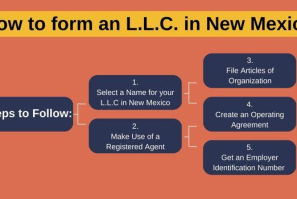Quantum computing is a rapidly advancing field that has the potential to revolutionize the way we process and analyze data.
Anil Bhaskar is originally from India and graduated in 2013 from the prestigious Chandigarh University
During the height of the pandemic, the whole world was in disarray, trying to find a way to keep going even as economies and industries rolled to a standstill.
In the past two decades the role of an entrepreneur has changed significantly in relation to the digitized age of the Web and social media.
Miami is widely known as one of America's most entertaining cities and top tourist destinations.
This new, digital world that we live in has certainly proven to be a cemented part of society, showing no signs of going anywhere anytime soon.
Known across the United Kingdom as the top destination for online raffles, Raffolux has transformed the way that people view the traditional raffle. Co-founders Gerry Lianos and Harry Hammond created the premier destination for raffles that include unbelievably luxurious prizes.
Retirement isn't too late to start a small business. You can still spend your golden years becoming an entrepreneur.
Starting a new business doesn't have to break the bank. Let's talk about how you could start up a small business for less than $500.
Here is a simple guide to help you write your businesses mission statement that concisely explains the purpose of a company, business, organization, or entity.
What is the difference between a mission statement and a vision statement.
How to determine when your business can issue bond, and if it will help you grow.
Do all startups have to start out small and grow from there? No, but it does mean it is in the early stages of its growth.
Do you actually need to get investment money to be successful? Here is what you need to know.
You often hear job-seekers saying it is better to steer clear of startup companies. But if you know what to look for, you can fast track your career.
Here's a guide to quickly grow your real estate portfolio.
Startups need employees that will match the energy and vibe they're going for, in addition to being hard workers.
Small businesses can struggle to break through, but we've got some tips and tricks for getting ahead.
A pandemic is not the ideal startup environment. New business owners share survival tips: drastic changes in delivery methods, product suppliers, and more.
They tased the dog, but it wasn't enough. A Chicago police sergeant had no other choice but to shoot the pit bull to prevent it from causing any more injuries.









































